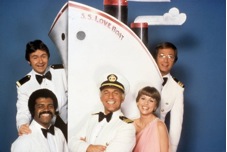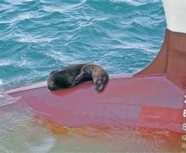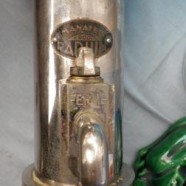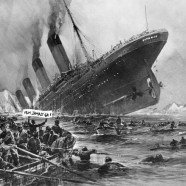Marie Curie’s radioactive waste
Marie Curie was an outstanding researcher and an adventuress of the atom. The President of the Republic chose to pay tribute again to the one who received the Nobel Prize in Chemistry for having discovered radium.
A century after this discovery, dozens of areas are polluted by radium residues throughout France. The location of these sites, radiological control, and extraction of contaminated materials consume a lot of money and time and face a major liability: lack of storage sites for radioactive waste from the first generation.
“Shipbreaking” # 27
“Shipbreaking” # 27, Robin des Bois’ periodical bulletin on ship demolition is available.
This edition contains inventories on the rush towards Asia of ships to be broken up, the prices of metal by country, portraits of the ex-Exxon Valdez and of the Pacific Princess gone for demolition in India and Turkey and the presentation of a ship-breaking facility project in Senegal.
74 pages of information and photos to discover the world of sea and shipping. (pdf – 3,9 Mo)
 Pacific Princess, the Love Boat is not enternaining anymore © ABC |
|
Radium Water fountains: The hunt is open in the Lyon-Villeurbanne region
Radium water fountains or radium vaporizers were used in the first half of the twentieth century to enrich the water with radon, descendant of radium. In this time period, they didn’t mistrust radioactive gas but rather boasted of its virtues.
Today these ornamental objects find themselves in attics, flea markets, and bric-a-brac sales.
Stop the Gigantics !
Costa Concordia – Press release n°3
Giglio
The Gigantic was the name with which White Star Line christened its 3rd liner. The Gigantic was even bigger than the Titanic.
After the Titanic sank, the company changed its communications strategy, launching the Gigantic under the name Britannic in 1914.













